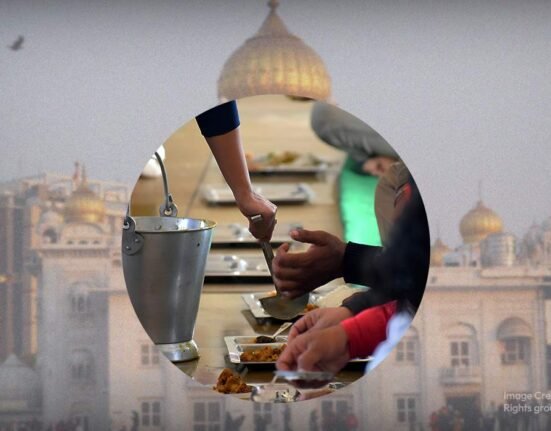Western culture is celebrated as the peak of development, progress, modernity, and civilisation. This glorification is not accidental; rather, it stems from long-standing historical and psychological processes. During the colonial era, Western powers constructed narratives that framed non-Western societies as primitive, static, and inferior. These narratives thereby justified imperial rule and, over time, solidified the cultural dominance of the West. These ideas were reinforced through multiple media forms such as education, missionary efforts, and propaganda. Over time, these ideas got ingrained in the psyche of both the coloniser and the colonised. Communities of the colonised people often also internalised these and suffered from an inferiority complex. Although colonialism as a practice ended, the narratives it left behind continue to influence perceptions to this day.
Colonial Legacy in Modern Media and the Role of Globalisation
Until the recent past and sometimes even today, modern media propagates colonial narratives by using common stereotypes. For example, African people are simultaneously portrayed as lazy and hardworking, depending on the context, and preferred over Western ideologies. Media outlets and the entertainment industries in the West have a large-scale impact on trend-setting. Through their films, music, or other representations, they project the Western lifestyle as ideal. This constant exposure to one kind of content (for example, “The American Dream”) shapes public and cultural consciousness around sophistication.
Globalisation has played a major role in spreading Western ideals around the rest of the world. Values such as individualism, meritocracy, consumerism, among other things, are considered as benchmarks of a progressive society and are promoted by institutions and practices. Thus, a stark comparison of inferiority and inadequacy comes into play, played out by colonised individuals and societies. This could lead to a cultural inferiority complex, which is marked by shame and beliefs that one’s culture is inherently less valuable or capable.
Cultural Inferiority Complex in Postcolonial Societies
The internalisation of Western values might result in chronic shame and self-devaluation. Philippines, for instance, makes it evident how colonial experiences contribute to internalised cultural hierarchies. The American role made English the primary language, Christianity the official religion and Western beauty standards were considered ideal. Generations of Filipinos grew up thinking these standards were the pinnacle of what life is meant to look like for them. This belief continues even today. This led to local language and customs getting devalued. Educational systems around the world still give priority to Western literature, history, and ideologies. Televisions hold people of lighter skin tones and Western fashion in high regard. As a result, native practices and beliefs get sidelined.
Psychological Mechanisms at Play
The widespread glorification of Western ideas is supported by basic psychological mechanisms like social comparison, which refers to comparing oneself to others, especially people of the ideal social standing, and identity formation, which is a lifelong process of individuals developing a unique sense of self. People consistently seeing Western lifestyles being portrayed as successful will think of them as default ideals. This kind of exposure influences personal aspirations and self-worth. Anyone deviating from that can end up facing shaming and humiliation.
Success often gets equated with adopting Western behaviours in environments where meritocracy is emphasised. An individual who fails to meet the standards put in place by society starts thinking their identity and culture are inadequate.
The Role of Public Shaming
Public shaming reinforces cultural inferiority. Platforms of social media that play a great role in tying the entire world together, often flag or fail to promote content of people who embrace traditional customs or speak in their mother tongue. Comment sections of cultural content is often found full of people bullying and mocking. Western ways of living are praised much more in comparison to indigenous ones.
This dynamic throws people, especially the youth, into a dilemma and pressurizes them to conform to Western norms. Fear of judgement, rejection, and exclusion discourages cultural expression on global media as well as within indigenous societies and groups. Over time this leads to gradual erosion of cultural pride, authenticity, and identity.
Insights from Postcolonial Theory
Postcolonial scholars such as Frantz Fanon, Edward Said, and Homi Bhabha offered valuable insights for understanding psychological aspects of cultural dominance. Fanon explored how even at the expense of their own identity; colonized people internalize the values of the colonizers. He pointed out that the feeling of inadequacy makes people imitate a dominant culture.
Edward Said introduced the concept of Orientalism, which helps us understand how the West constructs the East as exotic, irrational, and inferior. This ideology serves to validate Western dominance. Homi Bhabha discussed the concepts of mimicry and hybridity in his works ‘The Location of Culture’ and ‘Nation and Narration’, where colonized individuals imitate the colonizer but still do not get accepted widely. These ideas help explain why psychological power still lies with the West, even in a postcolonial era.
Global Manifestations of Western Glorification
The footprint of colonialism on a global stage manifests in various cultural conditions. In countries such as India, proficiency in spoken and written English and Western clothing are often associated with higher intelligence and socio-economic status. Local languages and customs are considered outdated and backwards by some segments of society. In China, the relationship with Western culture remains complex. While the country is applauded for its economic and technological success, it remains apprehensive. They instead look up to Western cultures, still criticising the moral decline.
In African nations, Western education has replaced traditional forms of knowledge which has been closely connected to spirituality. Students are made to learn about European knowledge systems with limited emphasis to their own cultural heritage. This often leads to a feeling of cultural displacement as people loose connection to their roots.
Toward Cultural Confidence
Addressing issues with the glorification of colonial mindsets requires various approaches. It is important that educational institutions and media houses, the two most powerful and influential foundation stones of society, incorporate indigenous languages, histories and philosophies while being conscious and respectful. Governments and cultural and religious institutions should initiate and support movements that preserve and revive traditions. This could include funding artists, educators, and other spokespersons. Cultural festivals, language preservation programs, and public awareness campaigns would go a long way in diluting the insecurities people might have with showcasing their practices.
Mental health professionals have a crucial role to play as well. They can help individuals and communities explore and affirm their cultural identity as well as channel and challenge their beliefs of cultural inferiority. Therapy practices should increasingly try to be inclusive and mindful of cultural sensitivity. It is also essential to critically assess the Western idea of ‘perfection’. Every society comes with drawbacks, addressing which shows us a clearer picture, thereby helping with overgeneralization and the belief that a specific culture can exist without faults and be a pinnacle for others to follow.
Read More: Cultural Kaleidoscope: Learn about Cross-Cultural Psychology
Conclusion
The glorification of Western culture is a phenomenon deeply rooted in colonial history, media influence, globalisation, and psychological dynamics. It sustains a cultural hierarchy that puts non-Western identities at a disadvantage, fueling feelings of shame and inadequacy. By understanding dynamics that have long been ignored, individuals and societies at large can begin to challenge and finally feel safe enough to build cultural confidence. True progress does not lie in imitation or following a group of people blindly just because we have been made to believe that they are more ’successful’, but in embracing the richness of our diverse cultures. A balanced global identity must be able to celebrate all cultures equally, fostering respect and psychological well-being that goes both ways.
FAQs
1. What is a cultural inferiority complex, and how is it linked to colonialism?
A cultural inferiority complex refers to the internalised belief that one’s own culture is less valuable or sophisticated compared to another, often Western, culture. This mindset often stems from colonial-era ideologies where Western societies portrayed themselves as superior and used this narrative to dominate non-Western societies. Even after the end of colonialism, these ideas persisted through education, media, and social norms, causing ongoing psychological and social impacts.
2. How does the cultural inferiority complex show up in daily life?
It can manifest in subtle but impactful ways—preferring Western clothing, speaking English over native languages, idealising Western beauty standards, or perceiving local customs as outdated. Individuals may downplay their cultural background to fit into perceived “modern” norms, leading to identity struggles, especially in professional and global settings.
3. Can the cultural inferiority complex be reversed?
Yes, but it requires intentional, long-term efforts. Culturally responsive education, media that affirm indigenous identities, and mental health support rooted in cultural sensitivity are crucial. Reclaiming pride in one’s heritage through language revival, traditional arts, and historical re-education helps reframe narratives and rebuild collective self-worth.
References +
- Harth, A. E. Representations of Africa in the Western News Media: Reinforcing Myths and Stereotypes. https://pol.illinoisstate.edu/downloads/student-life/conferences/1BHarth.pdf
- Rosenmann, A., Gerhard, R., Cameron, J.E. (2016). Social Identities in a Globalized World https://doi.org/10.1177/1745691615621272
- Wong, P. T. P., & Hwang, K. (2021). The second wave positive psychology of shame in East and West in the age of the 4IR. In Springer eBooks (pp. 131–145). https://doi.org/10.1007/978-3-030-59527-2_7
- Singson, F. (n.d.). Colonialism’s role in the success of the Filipino skin whitening industry. VCU Scholars Compass. https://scholarscompass.vcu.edu/auctus/45
- Muhammad Z. R., Muhammad N., Umar N. (2023). Inferiority Complex in Sidhwa’s “An American Brat” Post-colonial Perspectives. Scholar Insight Journal https://scholarinsightjournal.com/index.php/sij/article/download/5/15
- Zhang, C. (2019). Right-wing populism with Chinese characteristics? Identity, otherness and global imaginaries in debating world politics online. European Journal of International Relations, 26(1), 88–115. https://doi.org/10.1177/1354066119850253













Leave feedback about this